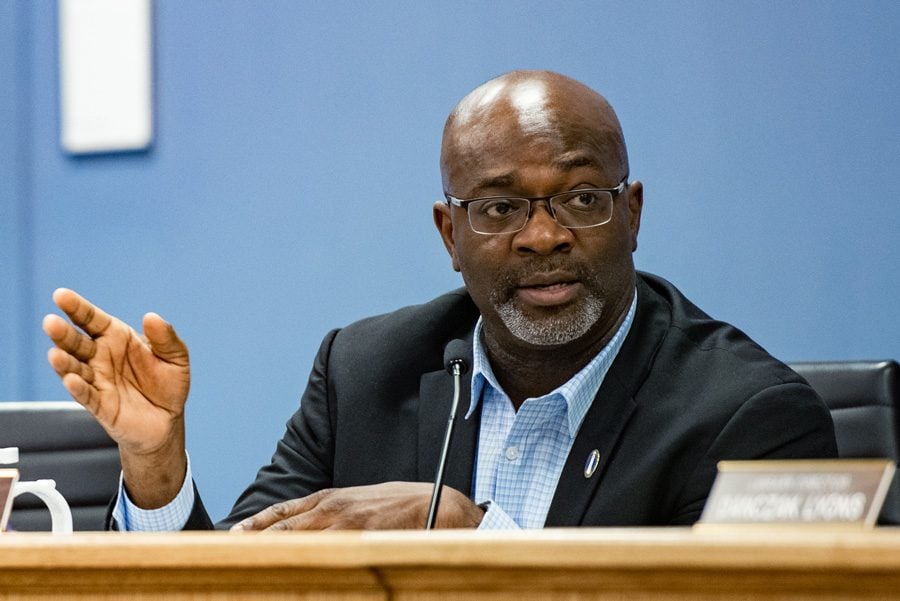Human Services Committee approves ordinance to incorporate restorative justice for juveniles, sending it to City Council for consideration
Evan Robinson-Johnson/Daily Senior Staffer
Ald. Peter Braithwaite (2nd). The Human Services Committee approved an ordinance to incorporate restorative justice measures for minors into City Code, to be discussed by City Council in the future.
May 6, 2019
Evanston officials will soon consider a measure aimed at reducing the number of minors receiving juvenile arrest records through the Circuit Court of Cook County.
The Human Services Committee on Monday approved an ordinance that would amend portions of the City Code to incorporate restorative justice practices for minors. It will be presented to City Council during an upcoming meeting.
Restorative justice is an alternative approach to discipline that attempts to take students out of the criminal justice system and help them make amends through more personalized means. The amendments to the code presented in Monday’s ordinance would include opportunities for minors who have violated laws to engage in restorative practices.
Such practices, according to city documents, include the minors meeting with other members of the community to “address trauma” and “repair harm to the extent possible,” as well as the minors possibly going to counseling or receiving other forms of training such as substance abuse education.
Patrick Keenan-Devlin, the executive director of the Moran Center for Youth Advocacy, said the new amendments would allow the city to consider how it can help each child who appears before it.
“It really reimagines and re-envisions what we as a city should be doing when children violate our laws and our social contracts, which is asking the question ‘How can we help you? How can we help you repair the harm that you’ve caused?’ as opposed to saying, ‘Here’s a fine,’ or ‘Here’s community service hours,’” Keenan-Devlin said.
Keenan-Devlin said the amendments would also increase confidentiality for juveniles and their records, which are currently stored by the city and create separate, private and confidential hearings for minors. Minors are also required to appear in the City Council chamber, he said.
With the new amendment, the City’s Division of Administrative Hearings would maintain the confidentiality of any records generated from the document that outlines the charge, including the charging document itself, according to city documents.
The amendment would also give adults the option to opt for community service, “as opposed to what is often a daunting fine that could be imposed by the administrative hearing division,” Keenan-Devlin said.
A University of North Carolina at Chapel Hill report found that Evanston police officers were seven times more likely in 2017 to search a black driver than a white driver.
Ald. Peter Braithwaite (2nd) said the push for the amendment for the last two years came from consideration of the report and a separate, “emotional” incident in which a juvenile was arrested at the police station.
Both Braithwaite and Keenan-Devlin said the new policy’s impact will be important for a long time. Keenan-Devlin said the legislation “will be a model not only for our region and the state, but for the nation.”
“In my seven years under City Council, this is probably one of the more meaningful pieces of legislation that we’re turning into policy that’s actually going to have a huge impact for generations,” Braithwaite said.
Email: [email protected]
Twitter: @cassidyw_
Related Stories:
– Evanston Organizes: Moran Center for Youth Advocacy provides restorative justice services for youth


